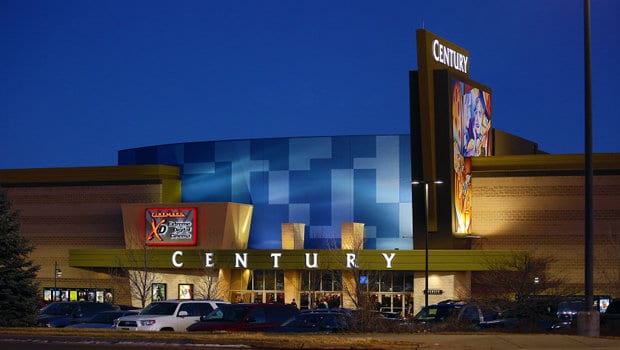Breaking News
‘Dark Knight’ Massacre Victims Ordered To Pay Cinemark $700,000

We are more than four years removed from the mass shooting in Aurora, Colorado, the site where James Holmes opened fire inside a crowded movie theater killing twelve and injuring seventy others. Let that sink in: four years. And the story after the tragedy – where the news cycle inundated audiences with wall-to-wall coverage as first responders and survivors recounted the events – continues to persist.
The latest turn is today’s ruling that ends the federal appeal for civil damages.
A little bit of background. Civil litigation against Cinemark Theaters, owner of the Century Aurora 16 multiplex where shooting occurred on July 20, 2012, has been ongoing since September 2012 when three victims filed a lawsuit in the U.S. District Court for the District of Colorado. The issuance was for the company’s alleged negligence in failing to provide adequate safety and security measures. Cinemark’s representation filed a motion to dismiss on September 27, 2012, on the grounds that there was no liability under Colorado law for failure to prevent an unforeseeable criminal act.
The case moved from the district level to the state level before finally being heard on appeal in federal court. According to a Los Angeles Times article, “the judge overseeing the case informed the plaintiffs’ attorneys that he was prepared to rule in the theater chain’s favor.”
On June 23, 2016, U.S. District Judge R. Brooke Jackson wanted the survivors and Cinemark to end the case with a settlement. Attorneys for both sides discussed the matter for the next eight hours before Cinemark’s attorneys presented a settlement offer of $150,000 split among 41 plaintiffs.
“[A federal magistrate] was basically telling us, you’re right, they’re basically at fault, but there’s justice and then there’s true justice.” — Marcus Weaver, Aurora theater shooting survivor
But if the plaintiffs rejected the deal and moved forward with the lawsuit and lost it carried implied repercussions: Under Colorado law, they would be responsible for Cinemark’s court fees. When one plaintiff rejected the deal, which would have had the three most critically injured survivors receive $30,000 each and split the remaining $60,000 among the remaining 38 plaintiffs, it created a “house of cards” as Weaver and other plaintiffs removed themselves. Except for four.
Judge Jackson’s order that Cinemark was not liable for civil damages means the four remaining plaintiffs are responsible for fees the theater chain incurred. According to court documents the fees include covering the costs of preserving evidence, retrieving and copying records, travel and other expenses.
With the ruling, Katie Mowgli of the alternative rock band The Mowlgi’s took to Twitter to voice her dissatisfaction.
.@Cinemark will boycott you 4ever & encourage others 2 follow if victims pay even 1 cent! (.0007% of your PROFITS!!) https://t.co/IrWZAj4Dhh
— Katie〽️owgli (@KatieMowgli) September 1, 2016
Marcus Weaver, one of the original plaintiffs, has been vocal about the class-action lawsuit. Talking with the LA Times, he called the original settlement a “slap in the face.” He’s not the only one; many plaintiffs are frustrated how the case was handled on the state level.
“A blind guy in a dark alley could have seen [the state verdict] coming,” Phil Hardman, Weaver’s attorney, said.